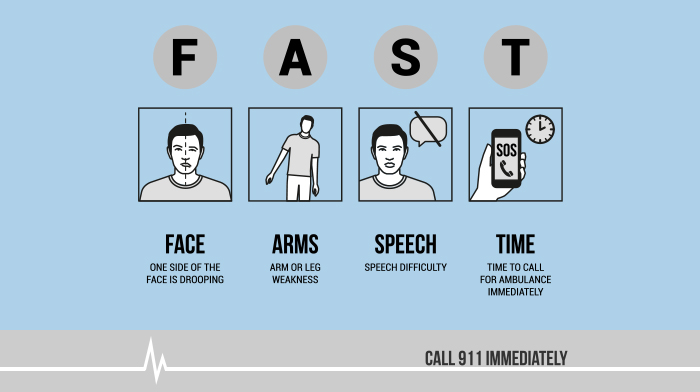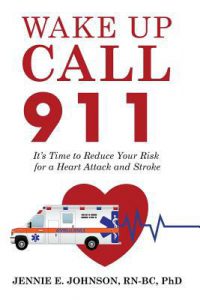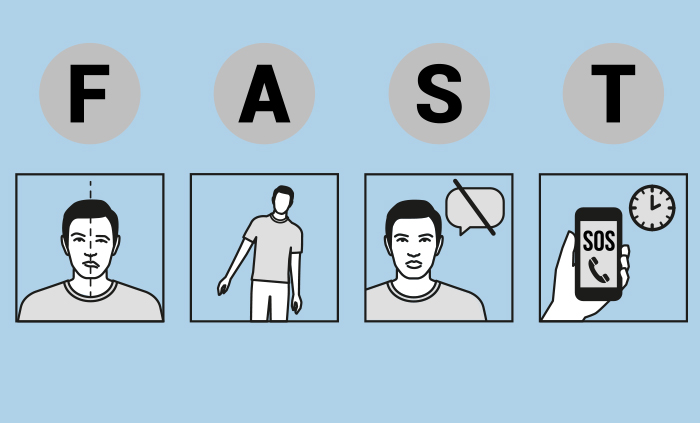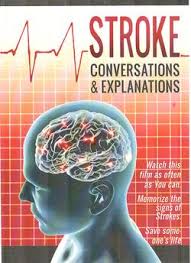Save a life: Ask FAST questions when you spot a stroke
Posted on August 15, 2017 at 6:00 am
by Debbie Rhodes
I woke up wandering into my living room thinking why wasn’t I at work?
My husband looked at me strangely and in a very uneasy tone asked, “How many children do you have?”
I replied, “Why are you asking me such a stupid question?”
It turned out he had a very good reason for asking. I had experienced a TIA, Transient Ischemic Attack, often labeled as “mini-strokes.”
I remembered telling my coworker that I was going home, but darn if I could remember leaving work or even driving home. My TIA had gifted me with Transient Global Amnesia which covered about 1.5 days. Apparently, I did leave work and drove to my parent’s home. Dad said I was talking to him, then screamed, and grabbed my head, and then my face just went “blank.” Now here is where I would have said to him—had I been cognizant and not on the verge of becoming a zombie, figuratively, if not in fact—ask me FAST questions!
So I pass this advice along to you should you ever see a loved one or even total stranger acting strangely (perhaps a bit like you’d imagine a zombie would), so that you will hopefully recognize that they could be having a stroke.
Here are some simple questions to ask when you think you’ve spotted a stroke victim, creating the acronym FAST (information from www.stroke.org):
F – FACE: Ask the person to smile. Does one side of the face droop?
A – ARMS: Ask the person to raise both arms. Does one arm drift downward?
S – SPEECH: Ask the person to repeat a simple phrase, such as “It may rain today.” Is their speech slurred or strange?
T – TIME: If you observe any of these signs, call 9-1-1 immediately.
Some refer to the ‘T’ in FAST as TONGUE, in which case you would ask the person to stick out their tongue. If the tongue is crooked (lolls to one side or the other) that is another indication of a stroke.

The big question you might be asking is if my dad asked me the FAST questions or called 911? Unfortunately, no, but we’ll give him a break because he wasn’t aware of what those signs meant. Fortunately, I did make it to the hospital 1.5 hours later with the help of my husband. Stroke victims usually have a 3-hour window in which to get diagnosed and receive treatment before the consequences are permanent or even deadly (hence the FAST acronym). So don’t hesitate and take a chance that everything will be okay. Make that 9-1-1 call!
So, I remained partially “zombafied” for months afterward. Stroke recovery can be different for each survivor. Apparently, I had been pretty busy that day of the stroke, making appointments that, of course, I didn’t remember making and missed! Worse yet, after TIA, my brain just didn’t seem on the same track as my tongue. I found that I couldn’t find words for common everyday things: fork, spoon, and plate were three that tripped me up at meal time. I could see the words in my head, but I just couldn’t get my tongue to say them. It was embarrassing and such a challenge (Ever seen a zombie cry? You would have if you had been around me during those early days of recovery.) I promise I am not complaining—I survived.
Now to stay alive, I am making some life changes to manage my stress better and to eat healthy and exercise. Rest assured, however, I will ask anyone who appears to be experiencing a moment of impairment the FAST questions and call 911 if needed. I hope you do too, and together we can hopefully save some lives.
ONLINE RESOURCES
National Stroke Association: Stroke Resources
American Heart Association: Together to End Stroke
American Heart Association: 1 in 3 adults may have had a warning stroke
TITLES FROM OUR CATALOG
Stroke: Conversations and Explanations, video by University of Texas School of Nursing at Houston, Center on Aging
This video is available as a DVD and a digital download from hoopla. This video is an honest and poignant exploration of the impact of strokes on the lives of six couples. The couples, ranging in age from their early 40s to their Late 70s, are interviewed two to four years after their strokes. They discuss the impact of the stroke on their lives and relationships. They explore topics such as intimacy, finances, depression, pain, frustration, fear, job loss, and daily struggles. Despite their suffering, they reveal the ability of the human spirit to maintain hope and to work for a better future.

Wake Up Call 911: It’s Time to Reduce Your Risk for a Heart Attack and Stroke, by Jennie E. Johnson, RN-BC, PhD
Heart attack and stroke kill more Americans than any other cause. Turn the page and learn how heart attacks and strokes develop and the small changes that you can make in attitude and behavior to reduce your risk.

Beat the Heart Attack Gene: A Revolutionary Plan to Prevent Heart Disease, Stroke, and Diabetes, by Bradley Bale, MD, Amy Doneen, ARNP, and Lisa Collier Cool
Heart disease is the number one cause of death in America. It affects 81 million Americans and is the culprit in one of every two deaths in the United States. Most people think that they are not at risk of a heart attack if they control their cholesterol and blood pressure, but they aren’t aware of other major risk factors. The good news is that with the right information and strategies, heart attacks are preventable–even if heart disease runs in the family. With their proven method utilized by healthcare professionals worldwide, the authors empower readers by alerting them to potential health threats, and then offer personalized, evidence-based strategies so they can live healthy, active lives without fear of heart attack or stroke. Available as a book and in several audiobook versions.
GET INVOLVED
Consider donating and walking in the 2017 Spokane Heart & Stroke Walk on Saturday, September 23. You can also get involved in awareness and other events throughout the year from the Spokane affiliate of the American Heart Association and American Stroke Association.
Tags: adults, books, education, Fast, health, health concerns, heart disease, hoopla, parents, recovery, spot a stroke, stroke, stroke recovery, stroke victim, TIA, Transient Global Amnesia, Transient Ischemic Attack



